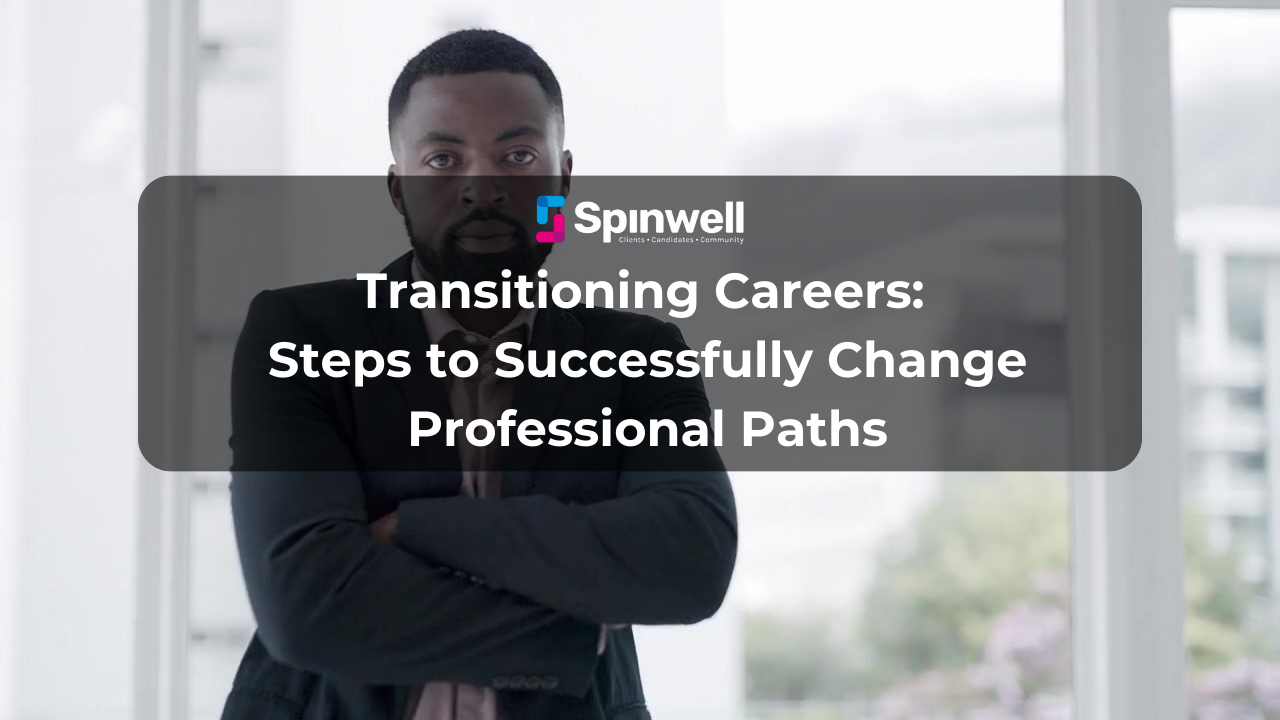
Transitioning Careers: Steps to Successfully Change Professional Paths

In today’s fast-paced and dynamic job market, it’s not uncommon for professionals to consider transitioning careers. Whether you’re looking for new challenges, seeking better work-life balance, or pursuing your true passion, changing professional paths can be a rewarding and fulfilling experience. However, making a successful career transition requires careful planning and execution. In this blog post, we will explore the essential steps to help you navigate the process and transition to a new career with confidence.
Self-Reflection and Assessment
Before embarking on a career transition, take the time to reflect on your skills, strengths, interests, and values. Consider what truly motivates you and what you want to achieve in your new career. Conduct a self-assessment to identify transferrable skills and areas where you may need to develop new competencies. This self-reflection will serve as a foundation for exploring potential career options that align with your goals and values.
Research and Explore
Once you have a clear understanding of your goals and interests, conduct thorough research on potential career paths. Explore industries, job roles, and organizations that align with your skills and interests. Network with professionals in your desired field to gain insights into the industry and understand the opportunities and challenges it presents. Attend industry events, join professional associations, and engage in informational interviews to expand your knowledge and gather valuable information.
Networking and Building Connections
Building a strong professional network is crucial during a career transition. Attend industry conferences, join relevant online communities, and engage with professionals in your desired field. Participate in networking events, informational interviews, and mentorship programs to connect with individuals who can provide guidance, advice, and potential job leads. Utilize online platforms like LinkedIn to expand your network and showcase your skills and experience.
Tailoring Your Resume and Cover Letter
Crafting a compelling resume and cover letter is essential when transitioning careers. Highlight relevant transferrable skills and experiences that demonstrate your ability to excel in your new field. Customize your application materials to align with the specific job requirements and clearly communicate your motivation for making a career change. Emphasize your passion, adaptability, and willingness to learn, which are valuable qualities during a transition.
Skill Development and Training
Identify any skills or knowledge gaps between your current experience and the requirements of your desired career path. Invest in training programs, certifications, or further education to acquire the necessary skills and enhance your marketability. Leverage online courses, workshops, or part-time programs to gain new skills while still working in your current role. Additionally, seek out volunteering or internship opportunities to gain hands-on experience in your target industry.
Securing Experience Through Internships or Side Projects
If possible, consider taking on internships, freelance projects, or side gigs related to your desired career path. This will allow you to gain practical experience, build a portfolio, and demonstrate your commitment and skills to potential employers. Even if these opportunities are unpaid or part-time, they can provide valuable industry exposure and help you establish credibility in your new field.
In conclusion, transitioning careers can be an exciting and fulfilling journey if approached with careful planning and preparation. By engaging in self-reflection, conducting thorough research, developing relevant skills, building a strong network, and tailoring your application materials, you can successfully navigate the career transition process. Embrace the challenges and opportunities that come with changing professional paths, and remember that with determination, adaptability, and a growth mindset, you can forge a new and rewarding career that aligns with your passions and aspirations.
Get in touch with us
NK







